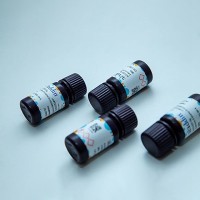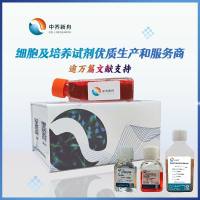PCR-Sequence-Specific Oligonucleotide Probe Typing for HLA-A, -B, and -DR
互联网
785
The advantages of using molecular methods instead of serological typing to define the human leukocyte antigen (HLA) system have been well shown in transplantation and disease association studies (1 ,2 ). There are many molecular methods available to define the HLA alleles. Described in this chapter is the sequencespecific oligonucleotide probe (SSOP) method. The basis of this method is the HLA locus-specific amplification by polymerase chain reaction (PCR) and the subsequent probing of this product by SSOP. Most of the vast polymorphism of the HLA system results from conversion events whereby small nucleotide sections of one allele (usually no more that 100 bases long) are transferred to another allele. Thus many of the sequences tend to be shared by alleles and not to be allele-specific. Therefore probes are used which are sequence-specific. In order to differentiate the alleles, a battery of probes is required, and it is the pattern of reaction of these probes that distinguishes the HLA alleles.









